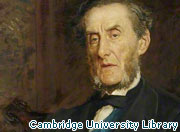Lord Shaftesbury, one of Britain’s greatest Christian reformers, died 130 years ago this week.
Shaftesbury was a social reformer and a philanthropist who spent his life working for those who were less advantaged than him.
His work in Parliament led to improvements in the harsh mental institutions and factories of the Victorian era.
Pleading the cause
The seventh Earl of Shaftesbury, Anthony Ashley-Cooper, was born on 28 April 1801.
His life and career were deeply influenced by his Christian faith, which taught him to value people regardless of their class status.
While studying at Harrow School, he resolved to dedicate his life to “pleading the cause of the poor and the friendless”.
Sanatoriums
He was elected to Parliament in 1826 and chose to fight on behalf of those confined to sanatoriums – mental health institutions – usually in appalling conditions.
In one such place, patients were chained up, slept naked and had nowhere to go to the toilet except the straw they slept on.
Legislation to prevent the worst abuses was passed in 1827, but it took many more years to radically improve conditions.
Working conditions
Shaftesbury also worked hard to improve working conditions in the factories driving Britain’s industrial revolution.
Children were often the victims of industrial accidents in mines, colleries and factories. After an accident caused the death of 26 children in 1838, he led a Royal Commission to expose the horrific conditions.
He sponsored a number of Bills which sought to reduce the working hours of children, leading to the Ten Hours Act, which made it illegal for women and young people to work more than ten hours a day in factories.
An evangelical statesman
Shaftesbury was also a prominent evangelical who worked with different Christian organisations including the Religious Tract Society, the Church Missionary Society, the British and Foreign Bible Society and the Church Pastoral Aid Society.
He also worked with churchmen from various denominations, most notably, Baptist preacher Charles Haddon Spurgeon.
Shaftesbury died on 1 October 1885. His funeral was held at Westminster Abbey and the streets were filled with people despite the cold wet weather.

